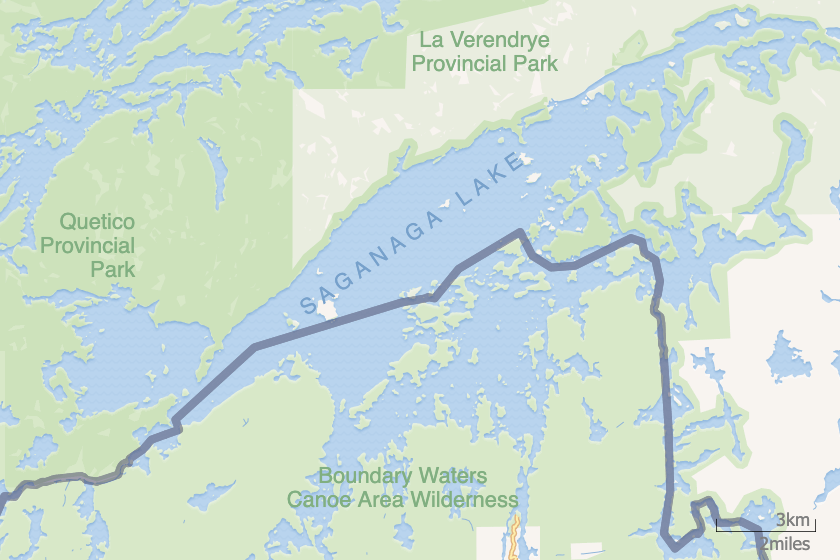NOVEMBER 28, 2022 – (Cont.) Twenty-five years later—in 1957—Dad returned to the Boundary Waters with Mother and two friends, Carl and Doris Sand. My younger sister, Jenny, went along for the ride. From the single photograph I remember of the expedition, Mother and Jenny, at least, wore a life jacket—the same one: Mother was six months pregnant. In the picture, she stood next to Dad’s ’54 Buick Super, smiling in her white sun hat, the end of her canoe paddle planted firmly on the ground and her hand grasping the handle confidently. She looked like a seasoned expeditioner.
All survived, and since the Sands remained close friends of my parents into old age, I could later surmise that they’d been happy campers during their trip to the wilds of the BWCA.
What would be Dad’s third and final trip to the Boundary Waters was to be a replay of his boyhood adventure there. Only this time, in 1964, he was the grown-up and I was the kid. As the sole adult—and the Dad, besides—he felt added pressure to be fully prepared. He pored over camping equipment catalogues and bought everything he could think of, from camp stools to cooking ware to a shaving mirror to powdered scrambled eggs (“Just Add Water” read the package) to a waterproof container for matches. “Just in case,” he told me, he’d also ordered from the catalogue a dozen cans of “pemmican.” He wasn’t about to be caught short of anything.
After we’d loaded our canoe to the gills at Gunflint Lodge—a jumping off point for the BWCA—the outfitter took a look and asked, shaking his head, “And how many weeks are you planning to be gone?”
“Just a week,” Dad answered sheepishly.
After four gorgeous summer days, calm waters, and breath-taking scenery in paradise, the weather changed. On the morning of our fifth day, a gentle rain greeted us as we exited our tent. Dad scrapped plans for the powdered scrambled eggs—“Just Add Rain,” he joked. Instead, we ate cold cereal with powdered milk. Clean-up was easy. As intrepid, poncho-clad voyageurs, we embraced the rain with a sense of adventure. We loaded the canoe, covered our gear with tarps, and strapped on our lifejackets. In the canoe, we always wore our lifejackets—a promise we’d made to Mother. We shoved off and paddled north down the Granite River.
After a morning of progress, we stopped on an island in Maraboeuf Lake. The rain was now intermittent, and Dad wanted to take advantage of the break in precipitation—if not in the thick cloud cover—so he could fix us lunch. He also wanted to study the detailed map he’d purchased for the trip. By mid-afternoon we’d be entering the “Big Water” of our trip—Lake Saganaga, which, Dad said, “is no place you want to be without knowing where you’re going and how to get there.” I had complete confidence in Dad. After all, he’d rescued our trip after we’d swamped the canoe shooting the rapids two days before. (Cont.)
(Remember to subscribe to this blog and receive notifications of new posts by email.)
© 2022 by Eric Nilsson
